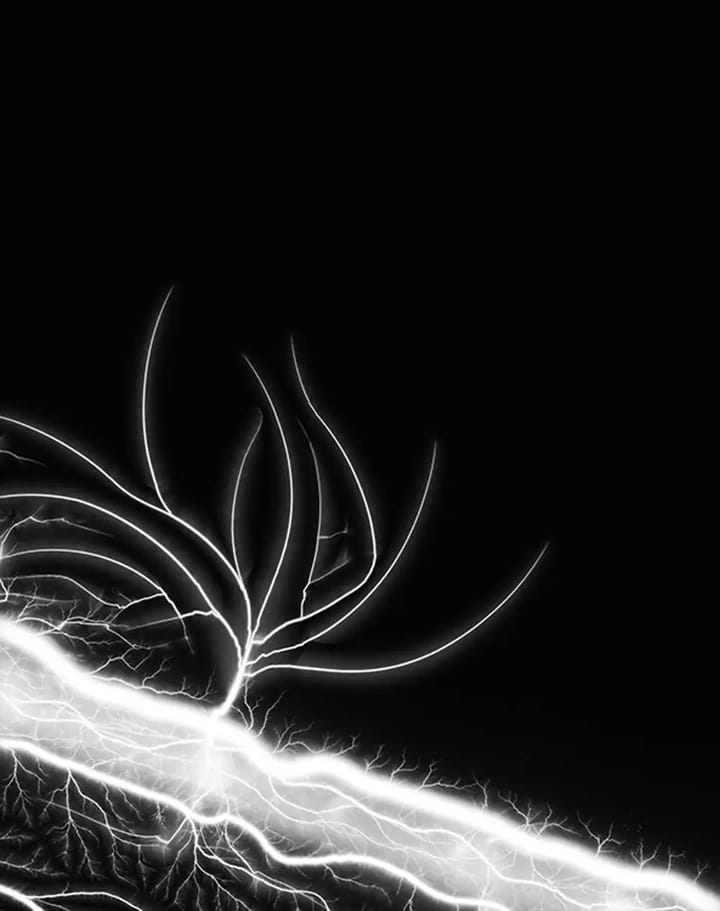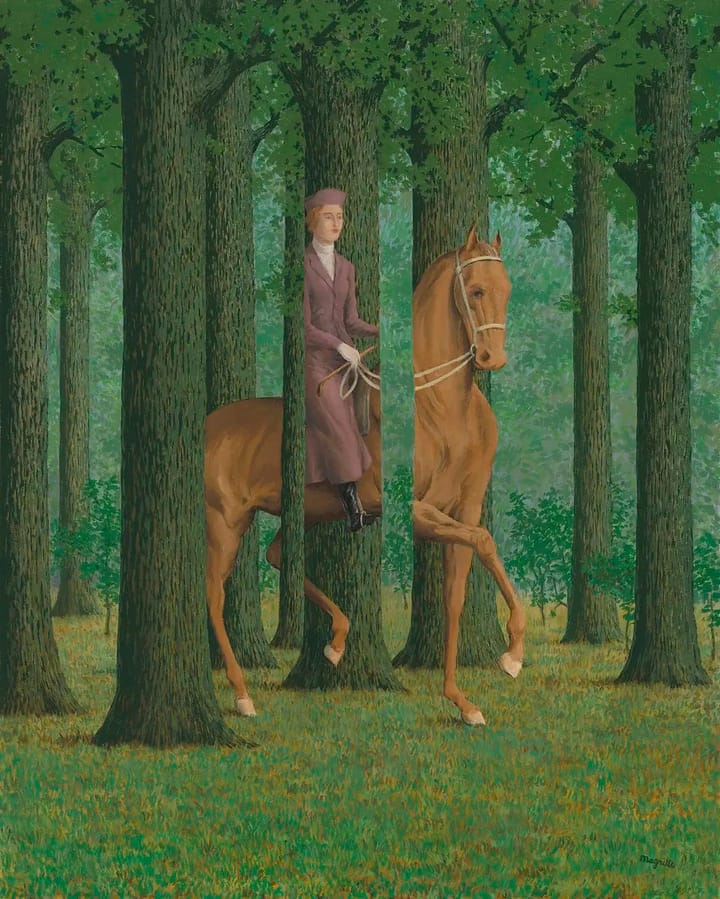Minus workshop 7, part 1: naturalism / gesture

The following was written when I was without power and what goes by the term connectivity—without power I had no easy access to water but could at least heat what I carried in pots from the smaller of our two tanks that collect rainwater from the roof—because a lemon wood approximately 10m in height, had fallen, taking out phone, fibre and power lines, only of significance since, without internet access, thinking of Mario Levrero's Empty Words, documenting his self-imposed calligraphic therapy and as a writer his struggle to concentrate on the shape of the letters, their size, they have a habit for him of shrinking, rather than any narrative content, I wrote in longhand, and since I was without internet there are, apart from one to Levrero, no links in the body of the text, so apologies to Audio Technica and the review of their latest turntable which I cite.
I read a description of a tea ceremony. It was part of a review for a new turntable called Hotaru, Firefly. Produced by a Japanese company, the turntable was designed to return ritual to the act of listening to music.
From the Sony Walkman on, audio technology has been about convenience, taking the music with you, having access to it anywhere and that access being immediate. The tea ceremony angle of ritual was to slow down, even delay that access, to appreciate in every detail the arrangement of its objects and the succession of movements which culminated in the listening experience. In the tea ceremony some elements of the ritual have nothing to do with the preparation of tea, rather they are there to manifest a high level of cultivation in the appreciation of cultural understanding. For example, the randomness of waterdrops from a bamboo pipe and the ephemerality of beauty—these are particular to Japanese; so we could say, preparing the platter, choosing the colour with which, made of translucent perspex, it is suffused, choosing the record, wiping it clean and placing it, setting the platter in motion, placing the stylus, appreciating the cover art, perusing the liner notes and, if there are, lyrics, are tactile acts, engaging with the technology rather than, at your convenience, setting it to do the work, or, in the case of streaming music, putting yourself at its.
All these factors in preparation, whether for tea or for music, suppose that we slow down, however, not for the sake of slowing down, rather to take into consideration the brush, the movements of frothing the matcha tea, the cup in its wabi-sabi refined poverty of appearance, its imperfection, and to show consideration towards them. Why? Why do we do this?
Why does an audio technology company make a product with high aesthetic value? So that we look at it? or so that we listen to it?
Neither is adequate since it is an object meant for use. It gains value from the parts of preparing for music in which it has a part and is a part. Perhaps Audio Technica believes that in instilling their product with aesthetic value, even if from cultural understandings that are Japanese, the buyer, the customer, will be brought to a higher level of cultivation. Perhaps it is this notion or it is the more cynical one of selling a lifestyle, a world in which the buyer achieves that level of cultivation by making the purchase, appealing to their aspiration of being a part of that world.
This is the way the purchase of art works has been perceived since the advent of modernity and the so-called rise of the middle class, the bourgeois aspiration of those to own objects which are in fact incomprehensible to them, the value of which to them is not artistic but symbolic.
I'm thinking of the purchase—of the banana taped to the wall and the prolongation of this logic of artistic consumption in our era which extends to its literal consumption, the buyer without compunction eating the artwork. The meaning of this gesture has been emptied, it is not one of the aspirant to culture, whatever one thinks of the artwork, but of someone for whom the act of buying was enough.
Did eating the banana show the emperor has no clothes on, and the artwork has no intrinsic value? And the art world is ridiculous? Or did it show the buyer was rich and that is all he ever aspired to be?
We are as used to the elevation of anti-culture as we are to anti-politics, new nihilisms where even self-respect is annihilated.
Do I beleive value lies in the ritual of culture—or in the ritual of politics? Or is there value in the ritual itself? I think I am trying to get at a kind of generosity of affect.
The act of paying attention, of showing consideration towards, in Japanese culture, what is ephemeral and passes, creates value, but doesn't the act of showing consideration towards any object, being sensitive to its unique qualities . . . Is any thing worthy of veneration?
No. Finding value in is instilling value in, and true of the creation of concepts as it is in the creation of gods. That is, it is a matter of choosing. A decision is made in the moment which cuts off one movement from another, one moment and one object, a leaf, a turntable, a teacup.
We are used to regarding ritual as invoking the past and abiding by past decisions about what is sacred as if they are rules. Rituals are just higher forms of habits. Because they are we want to rid ourselves of them. Sometimes violently, feeding the attraction to enlisting in a war on culture and a war on politics which is also a war on human imagination; and I specify it now because of the displacement intelligence has undergone by being artificially simulated.
Right wing conservatism aligns itself with antipolitics and anticulture, sometimes cynically, since it is said that the Right has learned how to win a constituency who desire for the current political system to be overturned and to feed that desire. Now, in cultural terms we readily see a departure from traditional conservative values. The Right traditionally upholds the values of a landowning and landlording class, but in aligning itself with technology a double transformation occurs: cultural values like the rituals of the past are incompatible with technology's internal drive for innovation at all costs, less than disrupted they must be jettisoned.
The Right is on the side of the future; technology, the second transformation, takes on the role of supplying political values, in which role it is weaponised: technology does just become political, it becomes politics.
This leads back to an earlier thought which came to me from my characterisation of imagination as élan vital, a drive into the future that we see in the natural world as libidinal drive. Against Eros, however, Freud pits Thanatos.
Darwin clarifies Eros's sexual nature as sexual selection, the counterpart to the drive of species to survive. To survive species require a conservation of form and of what we may call formal values. Mutation, from one form to the next, no matter how much better it is suited to the environment or even advantageous to the species in giving it a competitive edge, must be gradual.
A species whose dominance has relieved it of having to compete with others will interpose those boundaries over which formerly the diversity of species competed into itself, reproducing natural conditions through cultural and political means used to organise society and, securing loyalty to it, social values.
We have therefore the cultural and political conditioning necessary for social reproduction, which formerly the Right were all about. That it isn't—is one of the reasons the Left has lost itself.
Returning to nature then, we see the nature of all beings, both organic and inorganic—but unmanufactured—, as imaginative. In fact life is an attempt to hold it up, to arrest the onrush of the future, to hold onto form long enough to reproduce it! It seems that the Right's antipolitical and anticultural trajectory, a project of explosive technological innovation, is bound for death, like any nihilism.
Moreover, in culture we can locate in time exactly when the idea of an artistic nature without scruples, that in pursuit of novelty (and aided by technology) would smash the past, was born. It is as Virginia Woolf has written, one morning in 1915 everything had changed. Violence came culturally and politically to age a moment later, in the First World War.
The past having been smashed by modernity the postwar period was marked by a sense of picking over the trash, recombining it in postmodernity. The role of cinema, which I am following elsewhere, should also be noted, but I believe there has been a qualitative change with the advent of AI. To give the briefest summary, we can no longer think our way out of it because the faculty of thought and of reason is itself the object of recombination. To simulate thought simply is to smash it. Post-truth is a euphemism for the trash we now pick over.
Imaginatively we, I mean myself and my friends in Minus, turn to the other attributes. I see what is called thinking, as Heidegger wrote it, being only one of an infinite number of perceptual attributes. Its stock has simply been inflated, hyperinflated in the case of positivist techno-rationalism. Again it contains the logic by which it may be undone since the future it imagines is one without humans.
I ought to have been writing about naturalism, preparing for Minus's workshop 7. I have no problem with naturalism but only a problem with its application to what in theatrical terms, with which I am specifically concerned here, is not naturalistic. To bring this back to the gesture, the title of the workshop, there are gestures belonging to ritual as those which have had meaning in the past but have lost it so all that remains is the gesture, an outward form. Then there is the gesture I make now (it is not the one you are thinking about). It too may be meaningless.
In earlier Minus I said you may pick up on gestures which are unconscious. In thief or T.O.I.L. (theatre of individual life) this means repeating a gesture of one person who is, as it were, leading the scene, to try it on, to try putting it into your body—Spinoza's that which agrees with my body and that which does not—to find its emotion. Its emotion is the emotional world the gesture opens. Opens up and opens us up to.
This notion of agreeing is nice: that which agrees with a body enlarges the realm of what it can do and that by which it may be affected. That which disagrees with a body is that which on the contrary reduces and makes contract its sphere of action. And of affect.
Gesture in this second sense of being present, of acting and of an action performed now is how a body—the body of an actor—thinks: gesture is the equivalent to the body of thought to the mind. (The brain is in the body, etc.) Equivalent means of equal value.
Earlier Minus, I would've said that the practice individuates through gesture. Gesture as present and individual is not given and general. As present we note with Bergson its being in duration, having duration and, therefore, emotion, says Lapoujade.
Bergson describes this as virtual multiplicity. In other words, individual does not mean self-identical or with a clear and single identity but confused. Into it interpenetrate any number of other gestures and their emotional worlds, which having picked just one out I am now embodying, gesture is the hinge.
I pick out that which agrees with me—not "me" but my body. I might not like where this is going.
At the same time a gesture offers a formal restraint. I can not do any thing. At least, directing the scene, I am asking you to find a gesture which constrains you in two ways:
- to the range and series of gestures, consciously made and unconscious, of the one leading the scene;
- to the gesture which you are able to put into your body—that agrees with it (not you) and that enlarges the sphere of its (not your) action. (Action also means here affect as a synthesised action, a product of passive synthesis; aka, an association.)
- Whatever enlarges the sphere of action and affect for you leads to your growth as an actor.
It will be seen from 3. that bodily gesture, an action, is a way to get at—around behind—affect and relation.
What if we just went directly for the affect? This would be an effect of a bad naturalism. It would assume the 'nature' inherent in the gesture. And it would take it as given that therefore the action or gesture is meaningful.
What of this other word, relation? Why affect and relation? because in an emotional world, for emotion based on the map of already formed associations, we are dealing with space and therefore engage in spatial relations. We contrast relation with encounter for this reason and on these grounds substitute the event of encounter for the recognition relation assumes. A creative encounter is one which produces meaning—not one for which meaning is already given or from which meaning is necessarily given: hence the category of the "unnecessary." (Cf. Levrero) The creative encounter selects one from an infinite number of (neither possible nor impossible, but virtual because imaginative) worlds.
In addition, having considered a naturalism bad for its pre-selection of an already recognised and given meaning (so not enlarging the sphere of action; so not leading to the actor's growth), the most obvious way we see naturalism is when it is applied to the meaning—affect and significance—presuming the character for whom it as meaning: so, all recalcitrant children are alike; so an uncooperative child is played like this. The gestures invoked from a generalised naturalism of the emotion are invariably clichéed.
For a good naturalism Donnellan advises the target, playing the target not the character. Target is a neutral term, like gesture it does not assume importance, significance, meaning or value. A character is too general, too big of a focus. Target acts for Donnellan as a concentrated focal point. Like gesture it can be trivial. Equally, target individuates. Equally, it is a detail and to pursue it, to pick up on and follow it, is to be distracted by a detail. Distracted away from our need forever for meaning, as if we needed its reassurance before acting. In life however, in a good naturalism, we have no such assurance but do anyway, like Ishiguro's characters in The Unconsoled, there are no consolations; we make do and act, even in good faith, without the consolation of faith. Without either the consolation of philosophy or that of a theory of meaning.
If signs are events, we have here a semiotic theory without meaning: but to say, no givens, all in the encounter, the event, or the pre-signifying sign of the gesture, is not to say something from nothing. All of the infinite virtual worlds of imagination are there in the interval, attendant on being actualised, as if in the randomness of waterdrops from a bamboo pipe the ritual would select just one.


